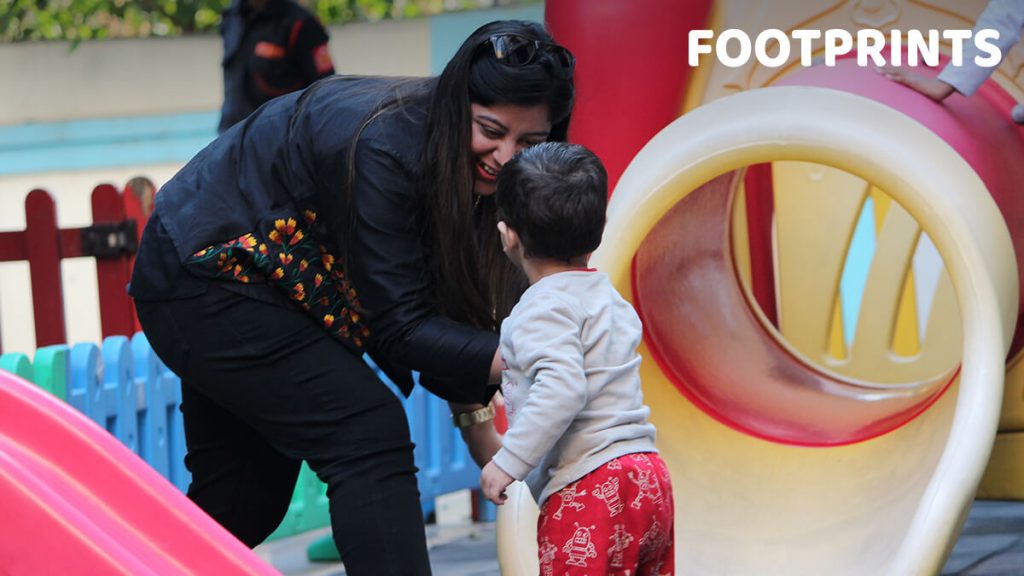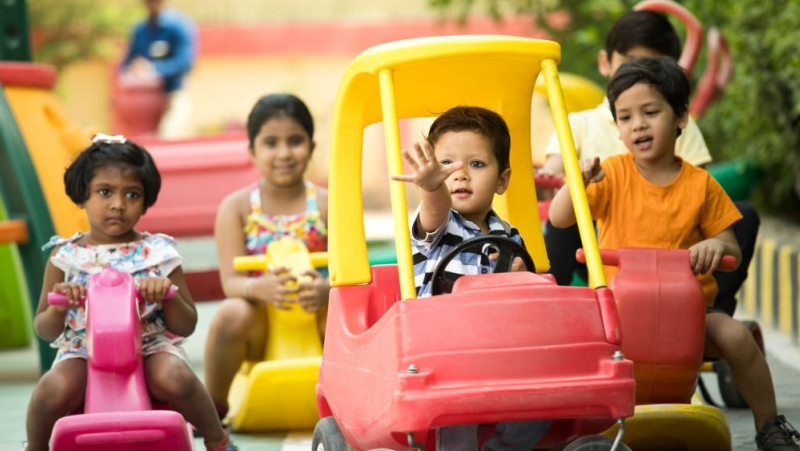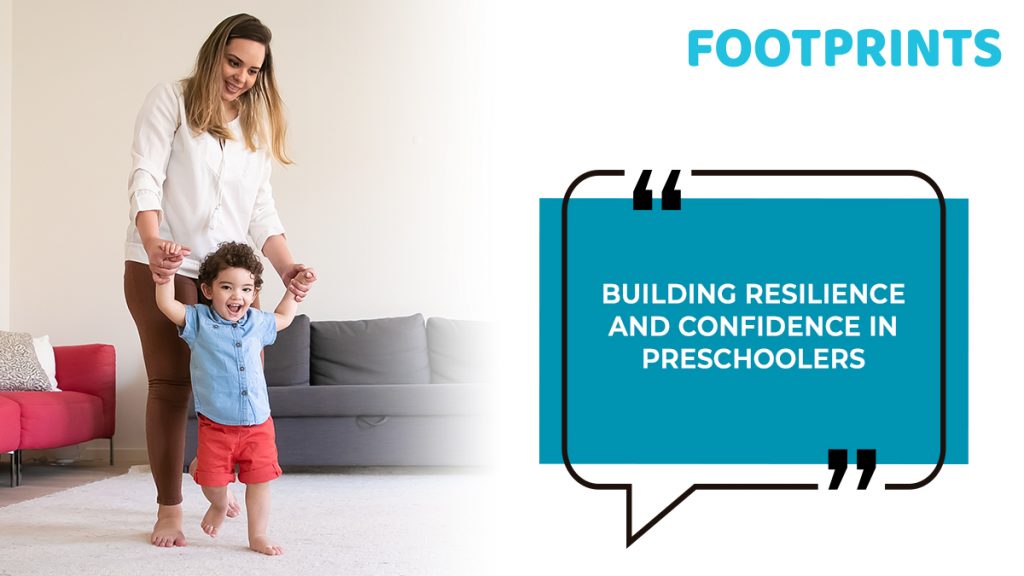
Enough & more research has shown that the first few years of a child’s life are crucial to their overall development. Building resilience and confidence during this time creates a strong foundation for a child’s future success. These characteristics set the stage not only for their future academic performance but also for social competence, emotional stability, and overall well-being. Here are some effective strategies to help your preschool-going children for building resilience and confidence, emphasizing the importance of patience, support, and play.
1. Be Patient and Supportive: Cornerstones of Development
Patience and support are the basis of all successful attempts for building resilience and confidence in playschool-going children. Children learn at their own pace, and it is important that parents show unwavering patience during the journey. Avoid setting unrealistic expectations and remember that every child is unique and has their own strengths and challenges.
Among other things, support involves active listening to the child and validation of his experiences. When children feel heard and understood, they are more likely to have confidence in their abilities and develop a positive self-image. This, in turn, increases endurance and builds confidence.
2. Positive Reinforcement to Boost Confidence
Positive reinforcement plays a key role in building a child’s self-esteem. Recognize and celebrate your child’s achievements, no matter how small. Praise their efforts, determination, and progress rather than focusing only on results. This approach teaches them that it’s okay to make mistakes and that effort is what really matters. Encourage them to take on new challenges and gently guide them through difficulties, reinforcing the idea that failures are opportunities for growth.

3. Building Resilience: Accepting Challenges
Resilience is the ability to bounce back from adversity, and it’s a skill that preschoolers can develop from a young age. Encourage your child to face challenges instead of shielding them from all difficulties. In the long run, remember that you need to prepare them for the road as opposed to preparing the road for them. If they encounter obstacles, offer guidance and support, but let them find their own solutions wherever possible. As a thumb rule, do not jump in to solve issues that they are capable of solving on their own.
By gradually guiding them through challenges (age-appropriate ones), you help them build the mental and emotional strength needed to navigate life’s ups and downs. Building children’s confidence starts with teaching them how to talk to themselves positively. Help them think positively instead of negatively. For instance, if a child says, “I can’t do it,” urge them to say, “I will give it my best try.” Such encouraging language reinforcement encourages a growth mentality and gives kids more self-assurance as they approach projects.
It is also important for children to develop a growth mindset. Encourage the idea that aptitude and intelligence can be improved via work. Telling tales of well-known people who overcame setbacks and persevered to succeed also works well.
4. Make Time for Play: The Serious Work of Childhood
Play is often underestimated but is an integral part of building flexibility and confidence. Through play, children explore their world, try on different roles and develop problem-solving skills. Create opportunities for unstructured play where children can freely use their imagination and creativity. Additionally, playing with your child will help foster a strong bond and provide a safe space for them to express their thoughts and feelings. It will also offer you many coachable moments that you could use effectively. Let them lead the game, make choices, and learn from their decisions. This sense of autonomy increases their self-confidence and decision-making ability.

5. Increase Confidence in the School Environment
The start of school is an important milestone for preschool children, and it is important to build their confidence in this new environment. The answer to how to build confidence in a child at school lies in communicating positively about school and its exciting aspects. Encourage open conversations about their day, friends, and the challenges they face. Help them prepare for school by involving them in the process, such as choosing a backpack or packing lunch. Creating a consistent routine that gives them a sense of security and structure is also key. When they feel prepared and supported, they approach school with that much more confidence.
6. Instill Problem-Solving Ability
Help youngsters navigate difficulties that are appropriate for their age, so they may improve their problem-solving and critical-thinking abilities. Encourage them to consider the pros and cons as they come up with solutions. You will be surprised at their thought process.
Above everything, help them realize that failures are opportunities to grow and learn.
7. Encourage Emotional Literacy
Help children identify and label their emotions, fostering emotional intelligence. Additionally, teaching them healthy ways to cope with emotions, such as taking deep breaths or using “I” statements, can go a long way. Above everything, remember to model emotional regulation and express your feelings in a constructive manner. It is important to remember that children learn more from what they see than what they are told.
8. Develop social skills
Establish play dates and group events to promote interaction with peers in order to develop social skills. It will also teach them valuable social lessons such as sharing, waiting for their turn, and more. Social settings will also help them learn lessons in conflict resolution. Pro-tip- There could be opportunities where the child behaves in a manner that is not acceptable. In such cases, remember to validate their emotions while clearly telling them that their actions are not acceptable. For instance, if a child hits another because the other child is not vacating the swing for him, it is okay to tell the child that his emotion of anger is valid, but the action is not acceptable.

9. Provide Autonomy
Allowing children to make age-appropriate decisions will help them develop a sense of responsibility and autonomy. It is key that you offer them age-appropriate choices, as opposed to forcing your opinions on them. Remember that at this stage, children start to value their independence. It will be a worthwhile exercise, for instance, to offer them two choices for lunch and let them take their pick.
10. Create Reasonable Expectations
All of the above said, remember to set attainable objectives in line with their growth stage. To avoid feeling overwhelmed and to increase their sense of success, divide jobs into manageable chunks. You sure do not want them to feel pressured.
To Sum Up
Building resilience and confidence in preschoolers is a rewarding journey that requires patience, support, and a nurturing environment. By being patient and supportive, emphasizing positive reinforcement, allowing them to face challenges, allowing time to play, and building confidence in the school environment, parents can build a strong foundation for their child’s future success. Remember that every child is unique, and the key is to adapt these strategies to your child’s unique needs to ensure a bright and secure future. Done well, you will be able to witness the signs of a confident child-pride in their achievements, enthusiasm for learning new things, dealing with failure with a positive attitude, and a lot more.


